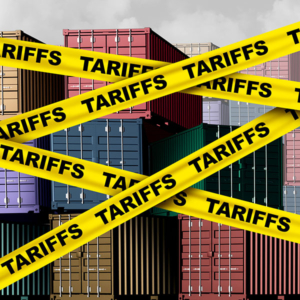
Last week, Swiss newspaper Finanz und Wirtschaft reported there were “whispers” that LVMH wanted to acquire rival conglomerate Richemont—and had its sights particularly set on Richemont star performer Cartier.
The story was pretty vague on its sourcing, and some publications, such as the newsletter Miss Tweed and the Chinese luxury publication Jing Daily, dismissed it outright. Bloomberg argued that Kering would be a better partner. (Richemont reportedly spurned a merger offer with Kering in 2021.) Richemont’s stock didn’t move much following the report.
But there are reasons there might be something to it.
For one, LVMH hasn’t shot this down, which would be extremely easy to do. It hasn’t even declined comment, nor has it issued the standard “we don’t comment on rumors.” It seems to not mind this story being out there.
For another, LVMH likes to buy things. A former Signet exec once told me its chairman was an “acquisition junkie.” But he has nothing on Bernard Arnault, who not only has around 75 companies under his wing but also famously engaged in frenzied but fruitless attempts to win control of Hermès and Gucci. Last year, Axios reported LVMH had held “exploratory discussions” about buying Ralph Lauren.
Arnault has quite the trophy case, but when he looks at what prestige brands he’s missing, Cartier is probably up there.
Finally, this isn’t the first time this has been discussed. When it looked like LVMH would cancel its deal to buy Tiffany, Bloomberg suggested it might instead go for Richemont.
LVMH’s 2021 acquisition of Tiffany was an attempt to gain a greater foothold in jewelry—the one area where Richemont’s traditionally topped it. Cartier is a big reason for that. Arnault always “likes to be number one,” an analyst said in 2019.
Some might say that LVMH’s $16 billion acquisition of Tiffany—its biggest buy ever—would keep it busy. But Tiffany’s results have been strong, and LVMH is already doing a victory lap with the brand, with Fast Company proclaiming Tiffany has executed “the fastest turnaround ever.” (The pandemic almost certainly helped.)
Last year, activist investor Bluebell tried to get former LVMH exec Francesco Trapani a seat on the Richemont’s board. That was shot down, after Richemont chair Johann Rupert argued Trapani “has a long history of close relationship with the LVMH group and its main shareholder.”
“Clearly, Rupert thought Trapani could be seen as a Trojan horse,” Jon Cox, an analyst at French financial services firm Kepler Chevreux, told Finanz und Wirtschaft. “That was one of the reasons for the strong opposition to the proposal.”
Perhaps they were aware what happened a previous time Trapani joined a board. In 2017, he joined the board of Tiffany, thanks to pressure from a different activist investor (Jana Partners). According to WWD, Trapani pushed for Bulgari veteran Alessandro Bogliolo to take over as CEO.
In 2019, LVMH made its initial bid for Tiffany. A later lawsuit noted that LVMH’s bid came one day before Tiffany’s board meeting, the date of which was “not publicly disclosed.”
Tiffany eventually “advised Trapani that he would not be indemnified in his role as director in the event that he breached his duty of loyalty to Tiffany,” the court papers said. He was recused from discussions about the acquisition and resigned after LVMH’s bid was accepted.
In a post-mortem, Reuters said:
Arnault relied on the close-knit connections that [LVMH managing director Antonio] Belloni had forged with Tiffany’s CEO [Alessandro] Bogliolo and board member Francesco Trapani back in 2011 when the pair worked at Bulgari, the sources said.
Their established relationship helped move the deal along swiftly and gave LVMH an advantage in its approach to Tiffany that few rivals could have emulated, they added.
Some feel that Cartier occupies a bit of a real estate in LVMH’s mind. According to a lawsuit filed in 2022—it was recently settled—Tiffany employees “repeatedly and knowingly solicited and received confidential Cartier information” from an ex-employee who came to work at the store. Tiffany denied the allegation.
This could come down to the personalities and egos of the people involved.
The initial Swiss report said that Richemont chair Rupert opposed a deal with LVMH. On the other hand, there’s been ongoing questions about whether the 72-year-old chair has a succession plan. He’s certainly been cagey on the subject, arguing “the minute you disclose it, the designated person immediately is under scrutiny.” But if he does want to cash out, he’d likely sell the entire business, not just one large component.
LVMH and Richemont are the two largest luxury conglomerates in the world. A tie-up would be huge. If LVMH won control of just Cartier, that would also be huge. A few years back, that might not have been a problem. But now, antitrust officials in both Europe and the United States have gotten more aggressive. Any possible merger of this size and scale would be carefully looked at.
Does LVMH want Cartier? Let’s just say, it seems to want everything. That doesn’t mean it will get it.
Top: a photo of Cartier’s reconstructed Parisian flagship (Photo courtesy of Cartier)
- Subscribe to the JCK News Daily
- Subscribe to the JCK Special Report
- Follow JCK on Instagram: @jckmagazine
- Follow JCK on X: @jckmagazine
- Follow JCK on Facebook: @jckmagazine






